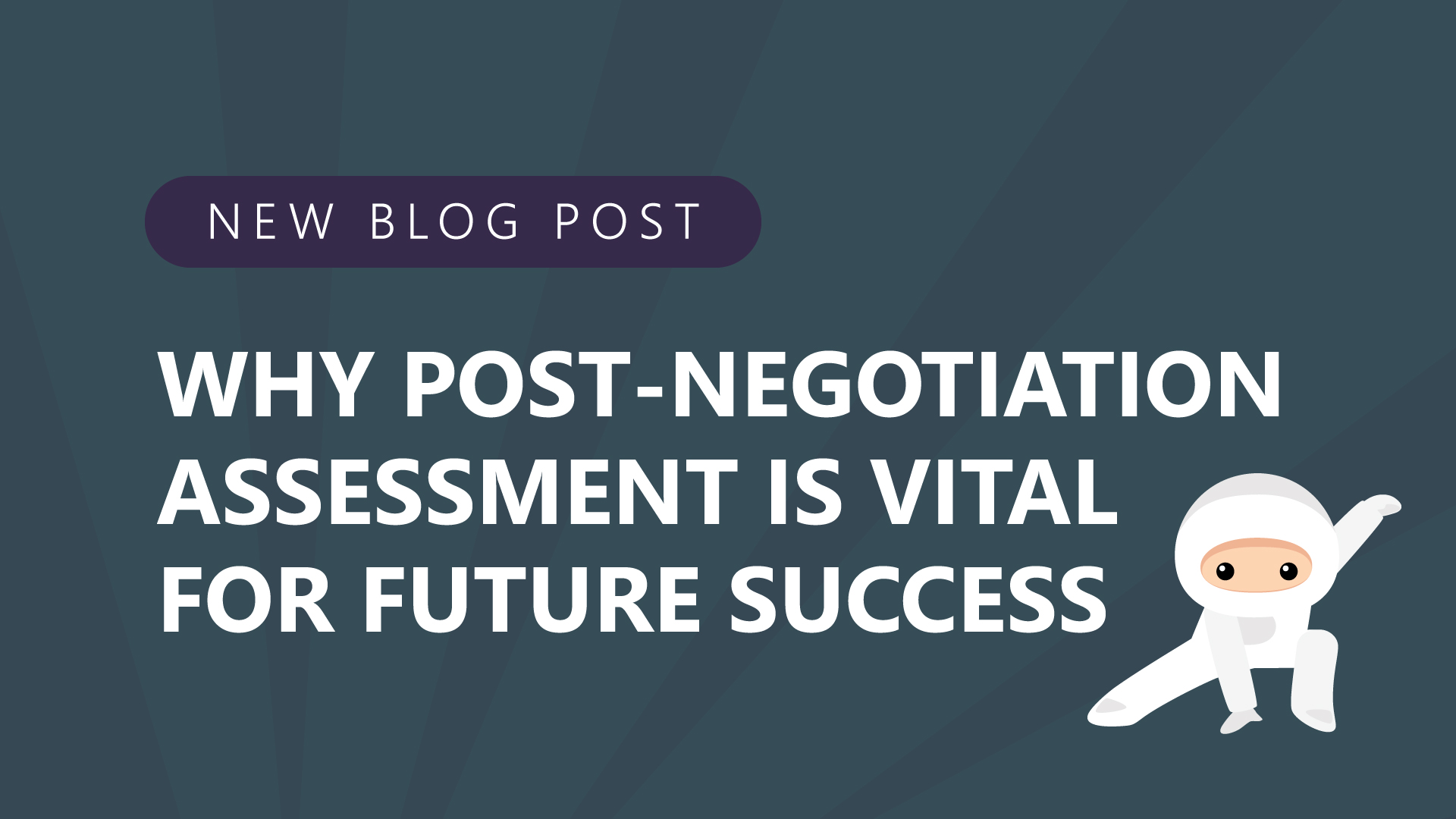No matter the outcome of the negotiations you’re involved in – positive or negative – a vital practice you need to develop is to conduct a post-negotiation assessment. This debrief should include everyone on your negotiations team. Walking through the events of the negotiation together can give you perspective, enable you to notice the nuances of what made things turn out the way they did, and provide an understanding of things that didn’t go as planned.
Teams seldom do a good enough job debriefing after negotiations – and in so doing they miss a potentially game-changing opportunity to improve their negotiations in the future.
What sort of things should you consider when you do a post-negotiation assessment?
Did you adequately prepare?
When conducting a post-negotiation assessment, evaluate the level of preparation you and your team did in preparation for the meeting.
Did you devote enough time to your preparation? It is recommended that negotiators invest at least five times the amount of time in preparation as they anticipate the negotiation itself to take. That means if you anticipate a 1 hour meeting for the negotiation, you should devote at least five hours to preparing for it.
How to evaluate your preparation, post-negotiation
Were you missing critical pieces of information you should have known or should have had available during the negotiation? Evaluate how that oversight happened. Is there something you need to fix in your research or communication process?
Did the negotiation reveal agendas or outcomes the other party wanted of which you were unaware? If so, why wasn’t that outcome discovered prior to the negotiation? Who was responsible? What questions should have been asked to unearth it?
Working through what happened, how it happened, and why – to the best of your ability – will reveal the strengths and weaknesses of your preparation so that you can make it even better going forward.
During the negotiation, what was within your control and what was outside your control?
It’s easy to assume that everything negative that happens in a negotiation is directly related to something your team does or does not do. But that’s not always the case. You can only control the things you have direct power over.
In a recent episode of Negotiations Ninja, Cal Chrustie referred to this as the “locus of control” He said that the things that ARE within your locus of control are the things you have direct control over through your own actions. The things that are NOT within your locus of control are, you guessed it, the things you cannot control or that are controlled by an outside force or person.
Some examples…
You are responsible for the amount of preparation you do for a negotiation.
You are responsible for the things you say that either increase the effectiveness of your position or diminish it.
You may even be responsible for some of the way others react to what you say (because you say it in a clumsy or confusing or uninformed manner).
But you are not ultimately responsible for everything that results from the negotiation.
If your negotiation was successful, was it because of skill or luck?
Thinking in Bets
In her book, “Thinking in Bets”, Annie Duke, a former professional poker player who has won more than $4 million in tournament poker, points out that in high-stakes situations like poker or negotiations, we are dealing with many unknowns that are outside of our control. Though we do and should try to plan for these unknowns, we won’t always be successful at doing so.
It’s vitally important, especially when things go your way, to determine WHY things turned out the way they did. Was it from the plan you put in place and the direct actions of you or your team, or was there an element of pure luck involved?
It’s misleading to take credit for a huge win when a closer look may reveal that there were things entirely outside your control that just happened to align in your favor. Taking the time to notice when that is the case can help you maintain humility and avoid a false sense of confidence that could lead to catastrophe later on.
Are you conducting post-negotiation assessments? If not, why not? Do you see the valuable tool it can be for enhancing your negotiating skills and effectiveness?
Learn more about post-negotiation assessment on episode #120 of the Negotiations Ninja podcast, with guest Cal Chrustie.

